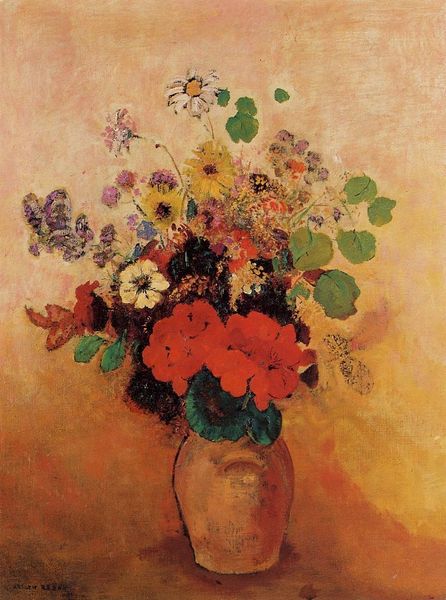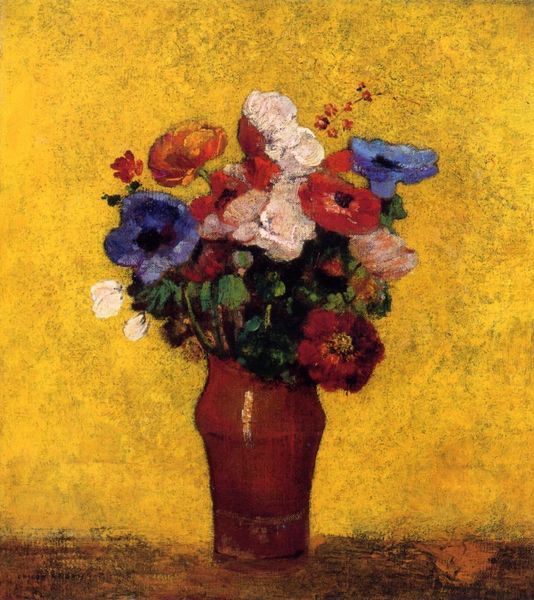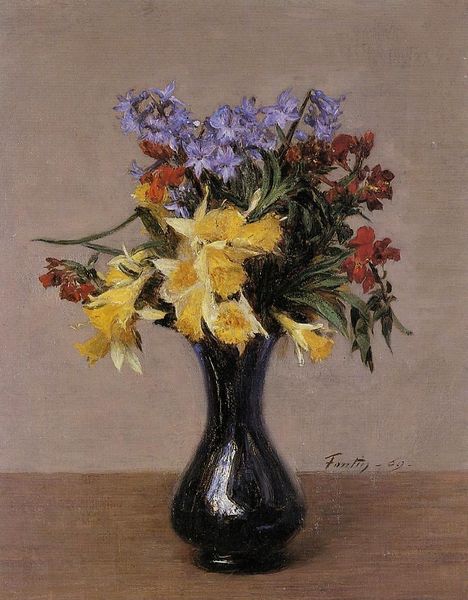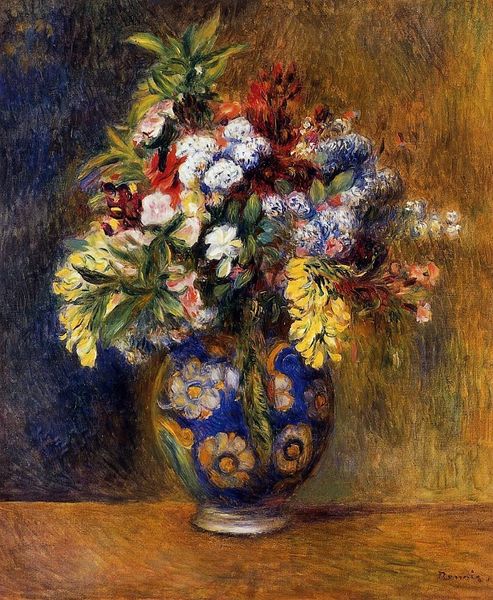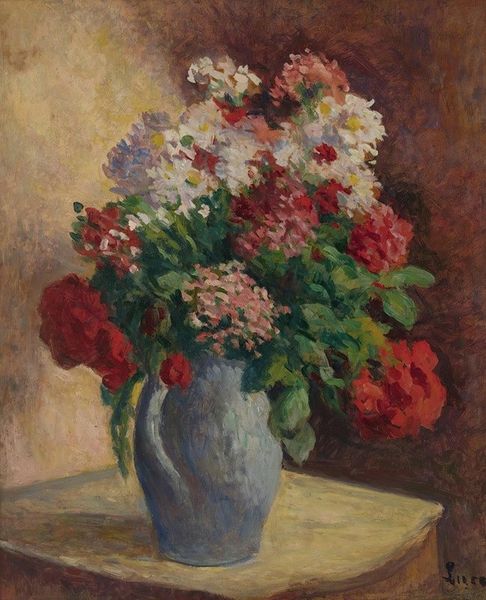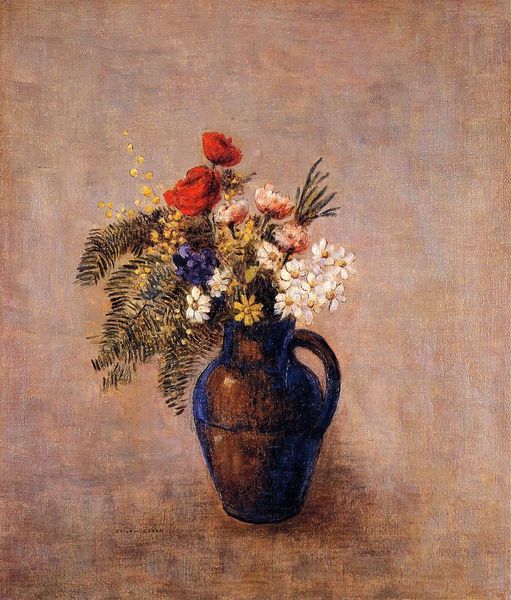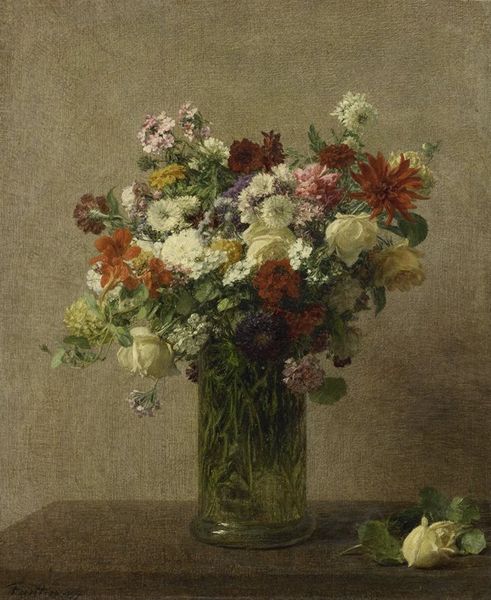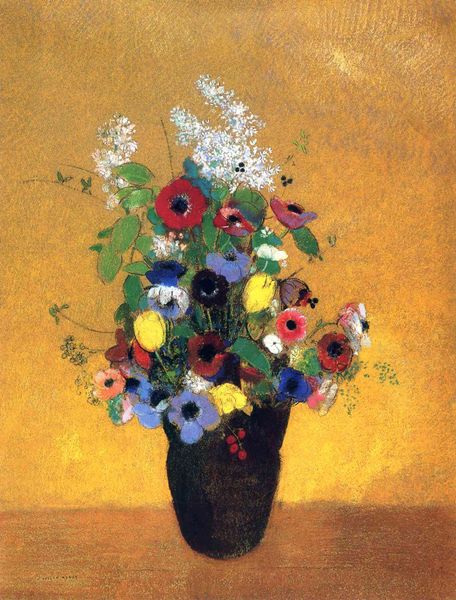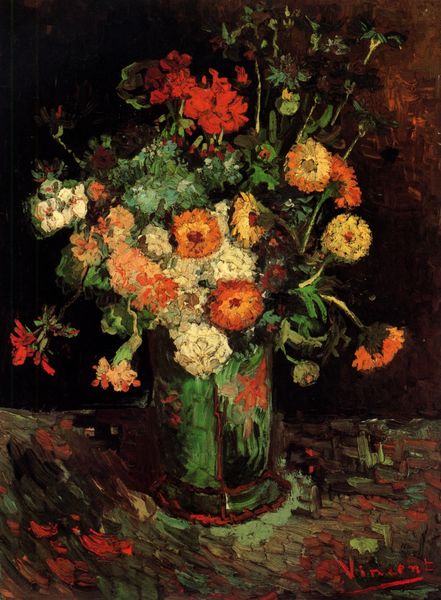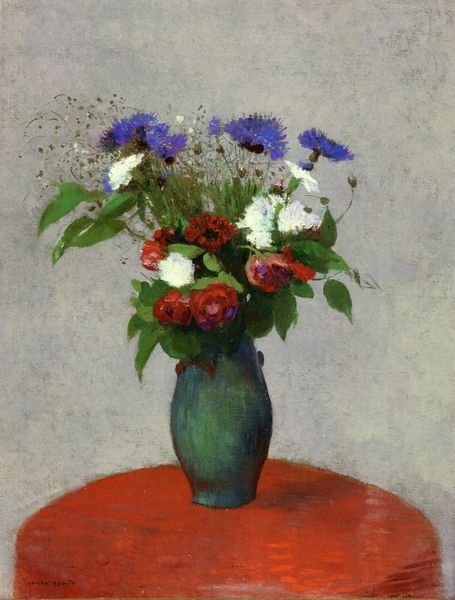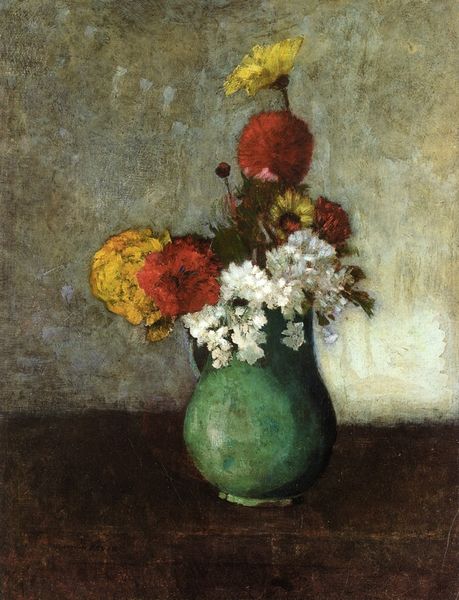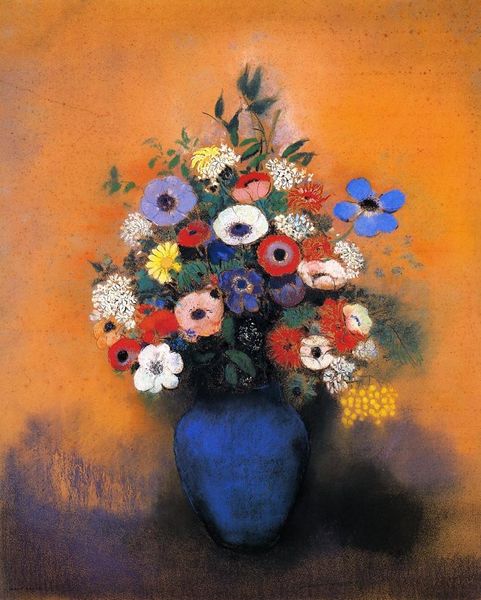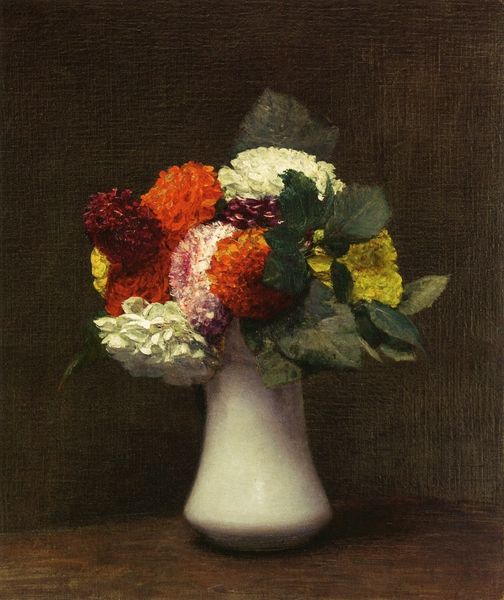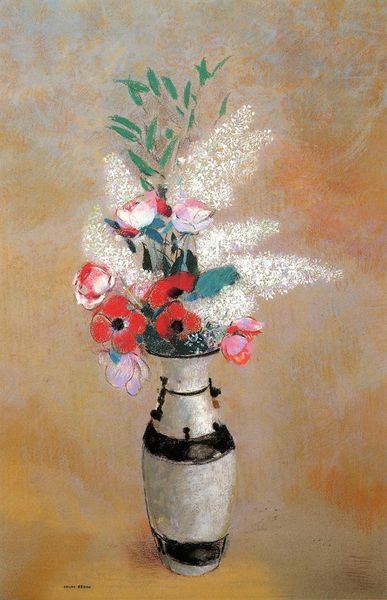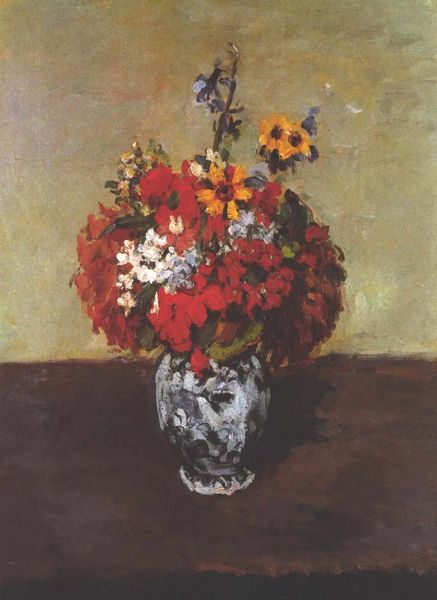
painting, plein-air, oil-paint
#
painting
#
impressionism
#
plein-air
#
oil-paint
#
flower
#
oil painting
Copyright: Public domain
Henri Fantin-Latour created this still life, "Vase of Dahlias," using oil on canvas in nineteenth-century France. The painting presents a seemingly straightforward arrangement of flowers in a vase, but the very act of depicting such a subject reveals much about the social and cultural context of its time. In 19th century France, the art world was dominated by the French Academy, which promoted history painting and portraiture as the most important genres. Still life was considered a lower form of art. Fantin-Latour, though, aligned himself with the Realist movement, which sought to portray everyday life and subjects without idealization. His choice to paint dahlias, common flowers readily available, reflects this interest in democratizing art. To fully understand "Vase of Dahlias," we can consult historical records, horticultural treatises, and exhibition reviews from the period. This reveals the values and attitudes of the time and how artists like Fantin-Latour both reflected and challenged these norms through their art. Ultimately, the meaning of this painting lies not just in the flowers themselves, but in the social and institutional forces that shaped its creation and reception.
Comments
No comments
Be the first to comment and join the conversation on the ultimate creative platform.
